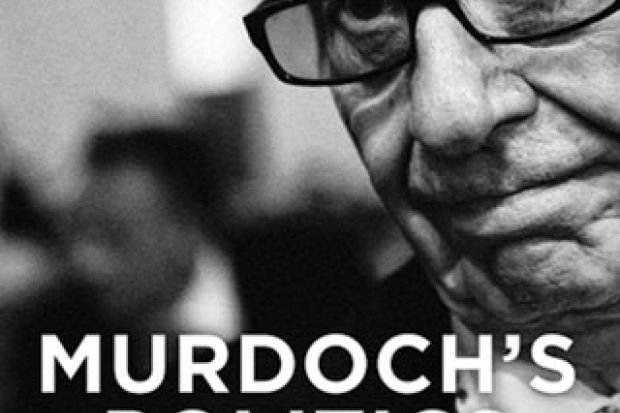Rupert Murdoch is a bit of an enigma. That might sound like an odd statement to make about a media magnate whose name, entered as a search on Amazon’s website, brings up 54 pages of references to books about him. But the enigmatic aspect of Murdoch’s character revolves around the basic question of what motivates the man. Is it the love of money, family, newspapers, influence or his own quirky, right-wing ideology?
Prior to encountering David McKnight’s highly readable and well-informed account of the man, I tended to argue that it was a mixture of all five. But McKnight makes a persuasive case that in order to understand Murdoch one has to see him as primarily driven by a particular brand of right-wing ideology.
McKnight does an admirable job of setting out the components of that ideology, which is a muddled potpourri of anti-elitism, free-market extremism, anti-monarchism, neoconservatism and a visceral hatred of all things European. But don’t just take McKnight’s word for it; he quotes former Sunday Times editor Andrew Neil, not exactly a card-carrying lefty, as saying: “Murdoch is much more right wing than is generally thought.”
Abandon any ideas of an incoming Labour government restricting cross-media ownership…’Tony says Rupert won’t wear it’
And that is part of the Murdoch trope, for he can give the impression that his image as a superficially right-wing ideologue hides a more interestingly nuanced character; one that, for example, now argues in favour of gun control in the US. But for McKnight, beneath this more nuanced character beats the heart of a ferocious right winger who will occasionally duck’n’dive in the short term in order to achieve a more substantial long-term goal.
Those arguing against this view point to the times when Murdoch has offered support to left-of-centre politicians such as Gough Whitlam in Australia and Tony Blair in the UK. But, as McKnight recounts, there was always either an overriding corporate logic to this or, as was the case with Blair, Murdoch saw that Blair was ideologically closer to him than was the public perception of the Labour leader. In fact, The Sun’s support for Blair in 1997 was not so much because the paper had moved closer to Labour, but that Labour had moved closer to The Sun. I recall, as a member of the media advisory group to the Labour Party at the time, being told by the late Mo Mowlam (then Labour’s spokesperson on the media) that we should abandon any ideas of an incoming Labour government restricting cross-media ownership because, and I quote: “Tony says Rupert won’t wear it.”
The key aspects of Murdoch’s political power include not just the way he has directly sought to influence politicians but also how his media have influenced the news agendas of his competitors. The Sun in the UK and Fox News in the US in particular exercise enormous media clout. As a broadcast journalist I well remember the not-infrequent occasions when colleagues asked me to pursue stories from The Sun, or the News of the World, with the words “I know it’s probably a load of old rubbish but…” This inter- media agenda-setting power has been underestimated; here, McKnight makes a powerful case for it as an important weapon in Murdoch’s right-wing armoury.
A favourite Fox News trick that McKnight mentions - and one that has always annoyed me - lies in how it carries out its self-imposed obligation to demonstrate “balance”. McKnight charts how the so-called balance between Republican and Democrat spokesmen appearing on Fox is way out of kilter in favour of the Republicans, both numerically and also in terms of seniority. But my favourite memory of Fox News balance came during the 2008 presidential election campaign, which I monitored in some detail, when there would be a supposedly balanced discussion between a Republican and a Democrat, who would open his (and it was usually a he) shtick by saying: “I’m a lifelong Democrat but this Obama character’s got me real scared.”
McKnight makes a compelling case that the “real” Murdoch is a hardcore right winger, determined to use his media power to advance his own political agenda: that wasn’t my view before I read this book but now I am not so sure. As to how much longer Murdoch will be able to use his media outlets to propagate his views, this is a question indirectly posed by the Leveson inquiry. We are still waiting for an answer from the politicians - perhaps they are waiting for their lead from Rupert? One hopes not.
Murdoch’s Politics: How One Man’s Thirst for Wealth and Power Shapes Our World
By David McKnight
Pluto Press. 2pp. £12.99
ISBN 9780745333465
Published 4 March 2013
Register to continue
Why register?
- Registration is free and only takes a moment
- Once registered, you can read 3 articles a month
- Sign up for our newsletter
Subscribe
Or subscribe for unlimited access to:
- Unlimited access to news, views, insights & reviews
- Digital editions
- Digital access to THE’s university and college rankings analysis
Already registered or a current subscriber?




